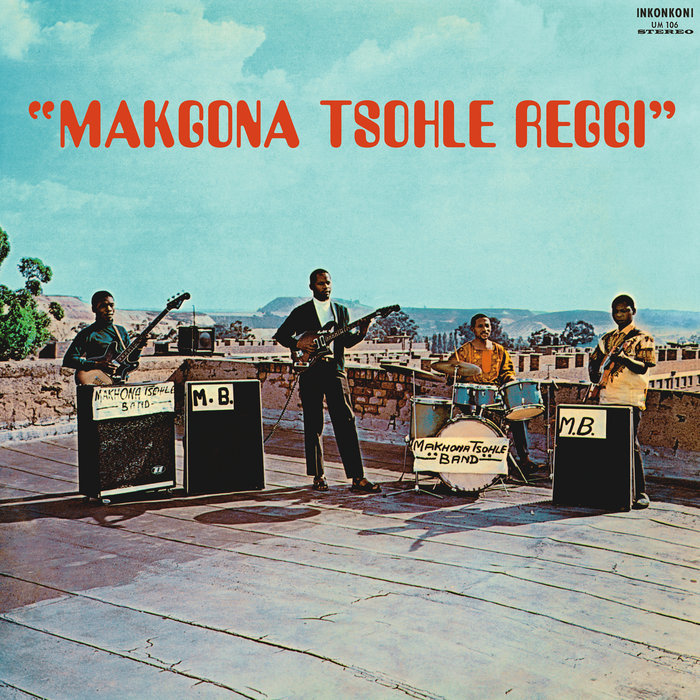
Bajikise Bops – Makgona Tsohle Band
this blog is GROOVY – check out great Soul, Funk, Jazz, Hip Hop, Bass, Breaks , Reggae, House n many more TUNES
Hey there, music lovers! Today, we’re diving into the vibrant world of mbaqanga, a South African musical genre that’s as funky as it is rich in history. So grab your dancing shoes and let’s groove through this rhythmic ride!
Mbaqanga is like a spicy stew bubbling up in South Africa’s music pot. You know how some dishes are best enjoyed with heart and soul? Well, mbaqanga is all about those ingredients. This genre blends traditional African sounds with jazz, blues, and even some pop influences. Originating from the townships during the 1960s, it became the soundtrack for many who faced hardships but always found reasons to dance.
To understand how mbaqanga came to life, we’ve got to rewind to its roots. Picture this: It was a time when South Africa was under apartheid—a tough regime that made life hard for many people. But amidst all that struggle emerged creativity and resilience!
Mbaqanga gets its name from “umbhaco,” which refers to cornmeal porridge—carbs that filled bellies while providing energy for dance floors everywhere! Musicians used local instruments such as marimbas and guitars alongside wild rhythms played on drums.
One significant aspect of mbaqanga is its connection with kwela—another upbeat genre often played by street musicians using pennywhistles (think Pipes ‘n’ Grooves!). This delightful combo captured the joyous spirit despite harsh realities outside their neighborhoods.
As mbaganza grew popular throughout townships like Soweto or Alexandra in Johannesburg—the scene exploded! Big names started popping up:
The Soul Brothers were among the first superstars who made hearts race with their electric sound.
Then there was Mahotella Queens, known not just for their vocals but also iconic dance moves—they could bust a move like nobody else!
Let’s not forget about Spokes Mashiyane, whose saxophone skills added pizzazz… And here’s where it gets funny; he had an extraordinary talent for playing sax using only one hand while holding his drink in another—now that’s multitasking!
By the late 1970s and early 1980s, mbaqanga had boomed onto mainstream platforms—and you bet folks took notice! Radio stations embraced this joyful rhythm; listeners couldn’t resist tapping along (even if they didn’t have two left feet!).
Funny enough, record labels sometimes struggled trying to categorize these artists because they were simply too unique—it led some producers scratching heads wondering if they should label songs under jazz or folk?!
But guess what? That didn’t stop these artists from creating epic jams. They carried on blending styles until even genres started jamming together!
Fast forward to today: mbozankos celebrate new-age vegans vibing at festivals alongside traditionalists who whip out vintage records ended up fusing old-school rhythms with hip-hop beats brings fresh flavors alive once again!
Artists continue pushing boundaries — take Thandiswa Mazwai, an absolute force whose tracks showcase modern-day issues yet stay true her roots… you may catch her rocking out an Afrobeat melody followed by poignant lyrics straight from township struggles right after grooving through jazzy riffs reminiscent of yesteryears.
Did you know some musicians throw improvised jam sessions at family gatherings? Imagine Auntie Mary signing soulful tunes whilst Uncle Bob casually strums away on his guitar—it can get hilariously chaotic when everyone wants a solo moment mid-braai (South African barbecue)!
This lively culture keeps relationships tight-knit while ensuring there’s never a dull moment around dinner tables—what better way than jamming till twilight?
Mbaqanga paved pathways opening doors into areas beyond borders far beyond Africa itself influencing various global sounds too—from reggae bands mixing beats inspired by lovely southern vibes—to prominent American rappers sampling grooves across oceans seamlessly marrying cultures without missing steps along way—a perfect example harmony created via music transcending differences altogether.
So next time you’re moving your body instinctively because something catchy grabs attention remember it’s likely traces mvankaga heritage echoing background wherever tuneful bumps float around us today gradually reminding ourselves just how interconnected everything really becomes when united through melodies irrespective backgrounds social statuses etc., indeed magical experience every single listen feels uplifting daily inspiration journeys!!
And there you have it—the funky journey through mbaqanga! From deep-rooted traditions forged amid adversity to modern innovations reflecting diverse influences worldwide—the spirit remains unstoppable truly showcasing nothing less than joy exuded whenever friends gather share stories over infectious beats allowing laughter humanity radiate most resonantly ever experienced regardless situation ones might face tomorrow dances freely thus reminds everyone holds strength community comes together remain powerful force that lights pathway ahead celebrating uniqueness each bright soul add colors canvas making history happen happily forevermore!
So keep grooving my friends—you never know what magic lies within those rhythms waiting just around corner ready burst forth unleash endless movement dreams ripe thrive rhythmically forever!!

Bajikise Bops – Makgona Tsohle Band